Published May 20, 2020
The Humbling of Admiral Picard
On Star Trek: Picard our beloved admiral is forced to reckon with his privilege as a Starfleet officer from a planetary superpower.
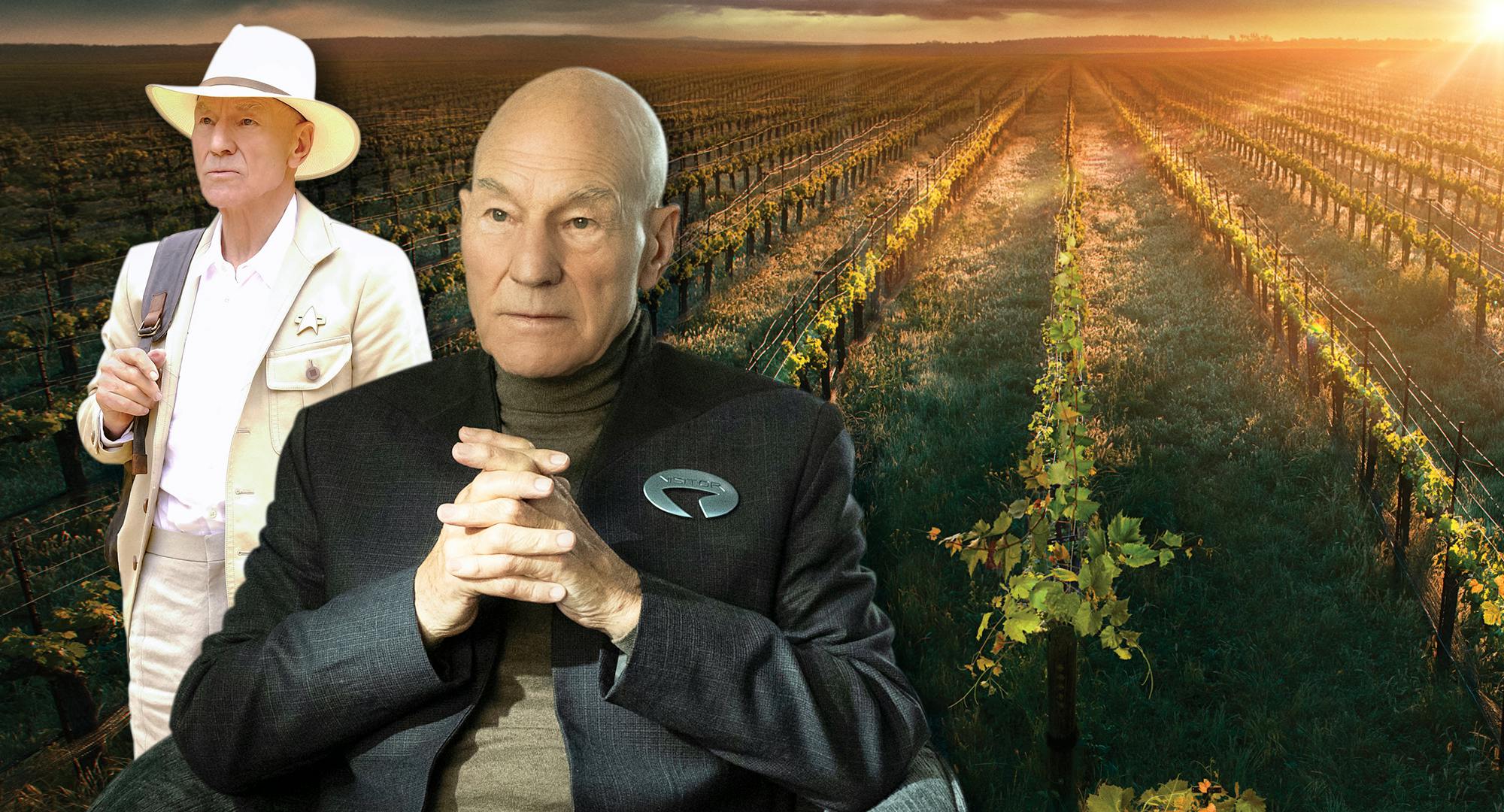
StarTrek.com
Star Trek has always dealt in stories about interspecies and cross-cultural interactions, and the way each franchise tells these stories is a commentary on the era that produced them. Star Trek: Picard is no exception.
In 2020, representation and inclusion have just as much, if not more, importance than diversity. Claiming to be an an ally to marginalized people without acknowledging your own privilege feels hollow. Picard’s ensemble of writers and actors lean into all of this — even Number One the dog represents a marginalized community — serving up a multi-layered narrative that explores how power and privilege play out in relationships with people who are different.
“One of the reasons why they chose the synthetics storyline is because it’s about othering,” theorizes Dr. Thomas Parham III, an African-American communications professor and author of Hailing Frequencies Open: Communication in Star Trek: The Next Generation. “It’s all about othering.”
While TNG positioned Captain Picard as an ally to marginalized groups, from Klingons to androids, Picard challenges him to check the privilege he’s enjoyed through various series as an able-bodied male Earthling of elevated Starfleet rank. Here are six times Picard called Picard out during Season 1.
Picard is finally getting old
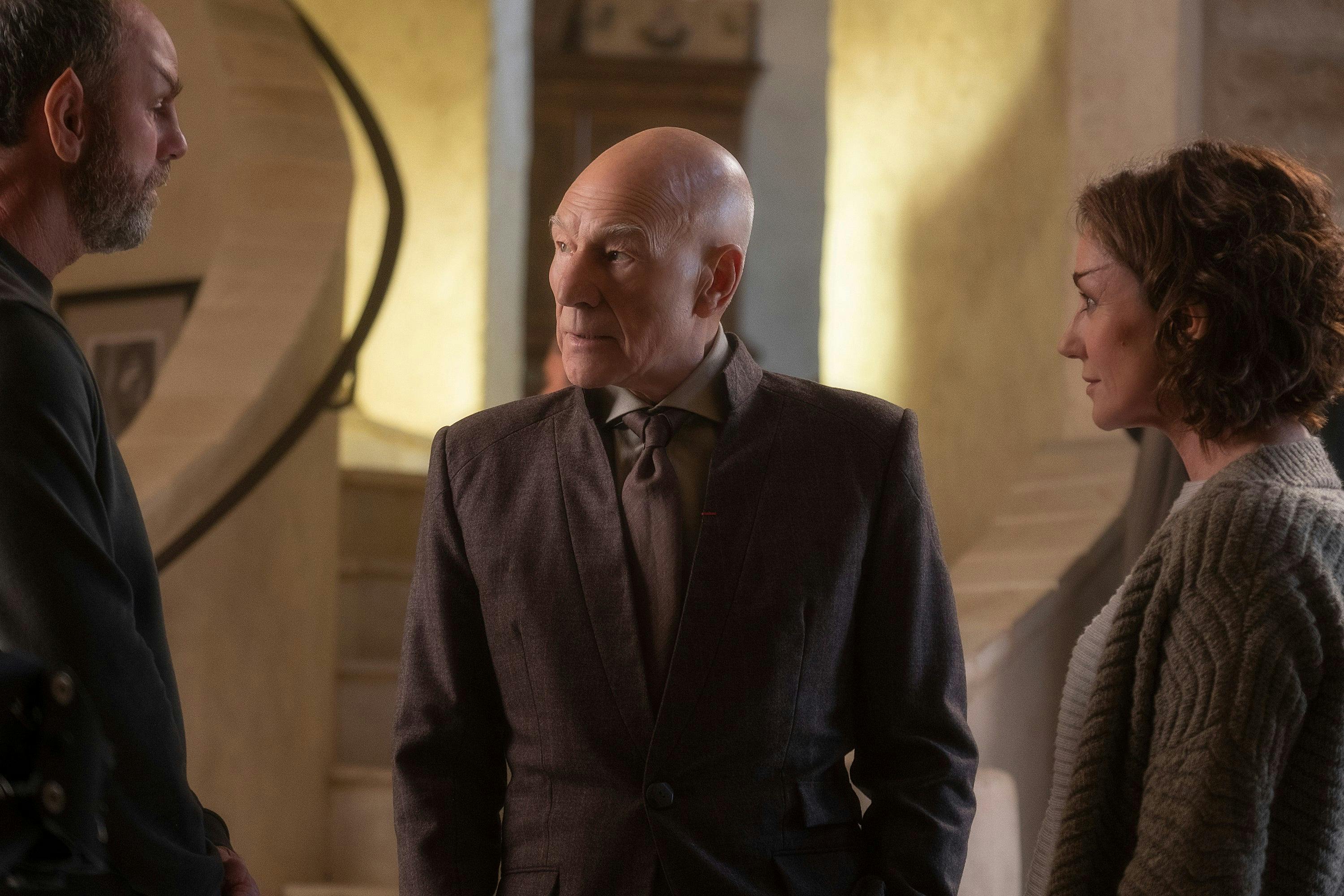
StarTrek.com
While Picard is used to taking care of other people, his titular show finds the Admiral at 93 now needing other people to take care of him. He’s in no position to save anybody and, in fact, his inability to do so results in Dahj’s untimely death. Despite this, Picard still seems to view himself as at least a little immortal. He embarks on a mission with a brain abnormality that could kill him, as Dr. Moritz Benayoun warns. Being agile and able-bodied is a privilege Picard has taken for granted, even after his Borg assimilation, and the lack of it becomes a crucial plot device that carries through to the season finale.
Picard is no longer relevant
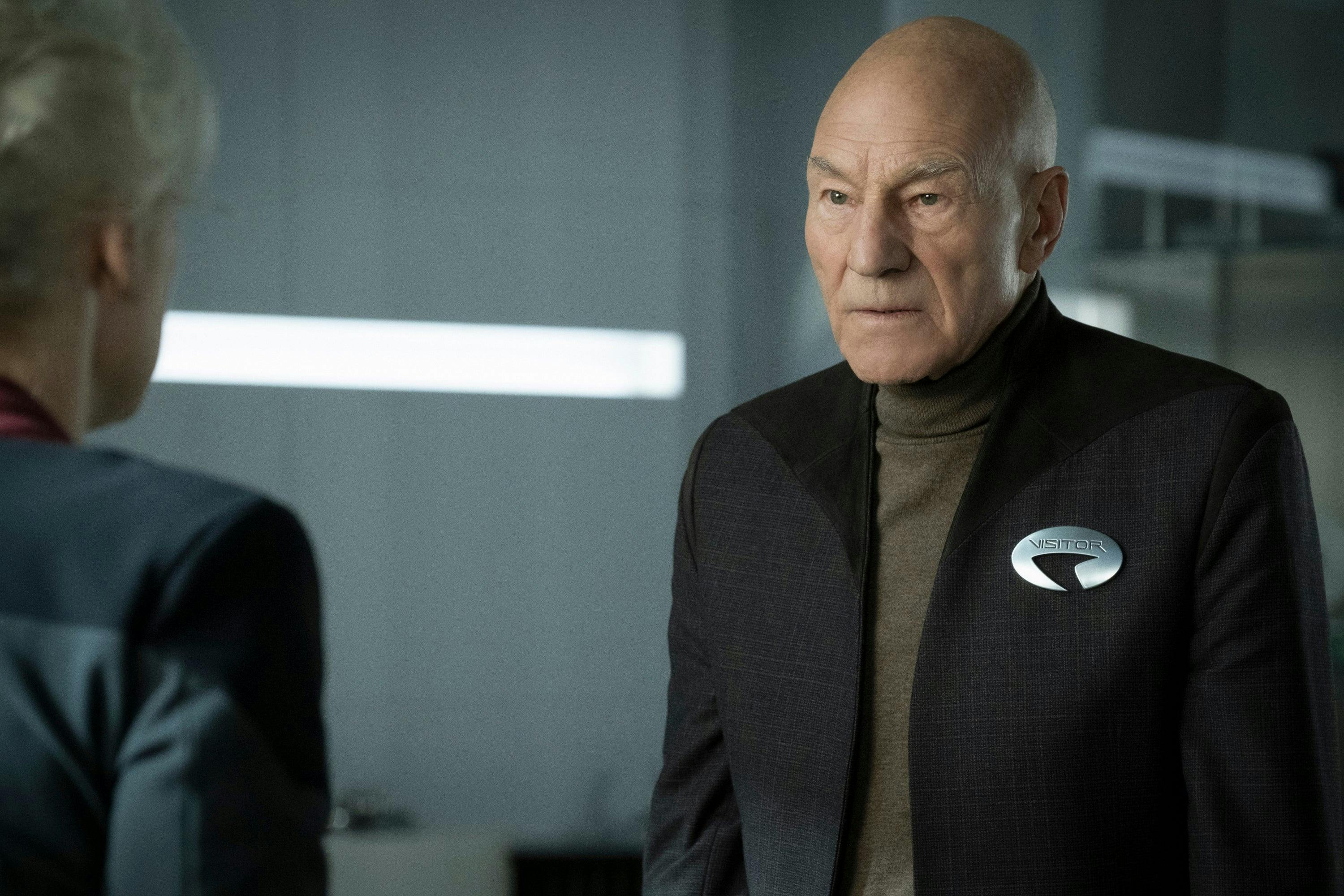
StarTrek.com
Not being relevant is the ultimate slap in the face for high-profile people used to calling the shots. Picard is visibly bothered when a Starfleet receptionist asks for his name when he arrives for his meeting with Admiral Clancy. She, too, takes him down a peg, calling out his “sheer, fucking hubris” for even showing up with a request for reassignment, calling his Tal Shiar conspiracy theory, “the delusions of a once-great man desperate to matter.”
Ironically, Picard seems to have thought that asking for temporary reinstatement, a skeleton crew and a low-class ship was an act of humility. In a way, though, Picard’s irrelevance works out in his favor since his eventual crew only really identifies with his mission when it becomes clear that it’s a “lost cause.”
His resignation wrecked his relationships
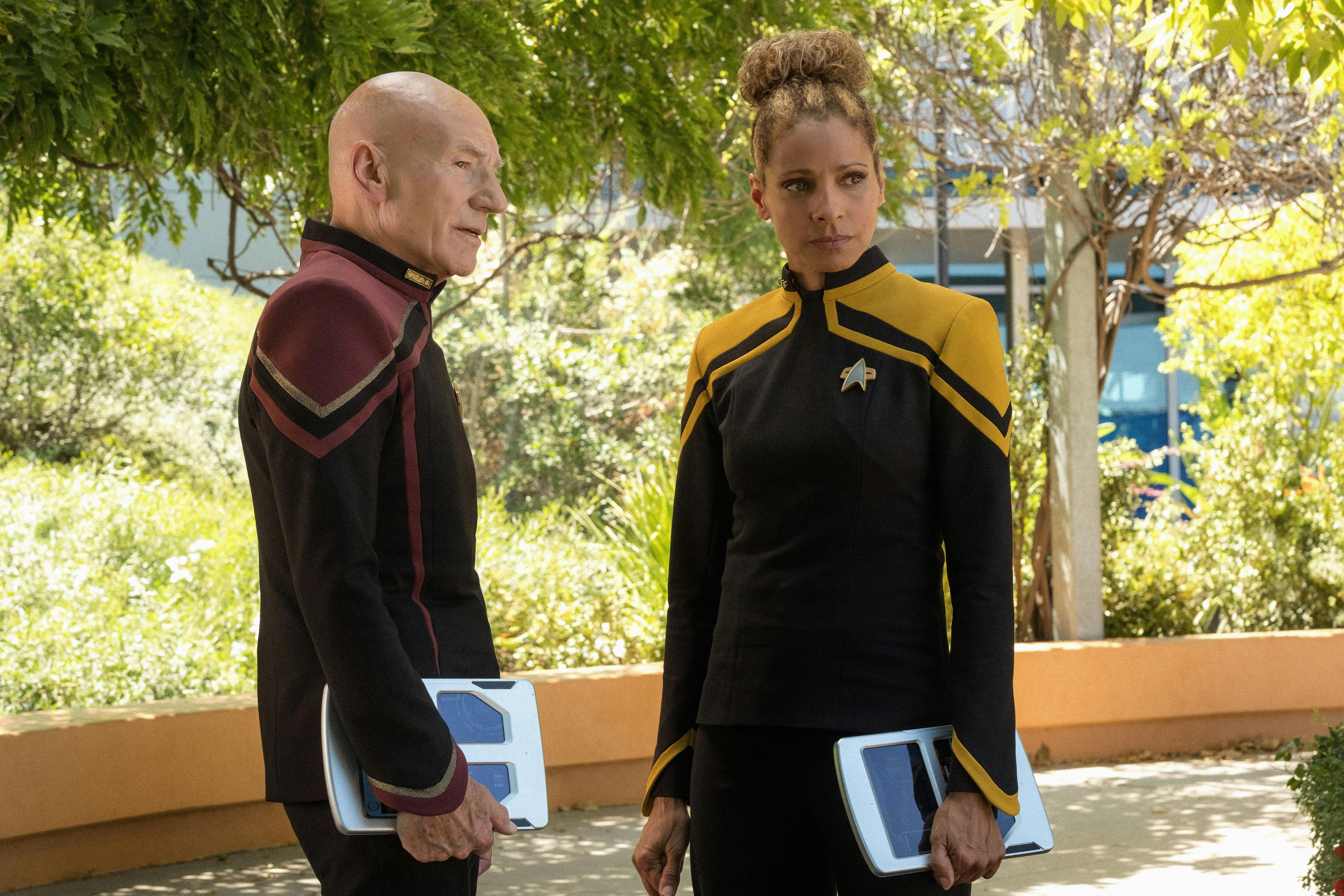
StarTrek.com
For Raffi and Elnor, Picard’s resignation had far more dire consequences than irrelevance.
When Picard finally does try to reconnect with them, they’re not having it — and with good reason. While he’s been riding out his post-resignation “massive pity party and shame spiral” in luxurious Chateau Picard, Raffi’s been sinking into the depths of humiliation, rage, and substance abuse — something she already struggled with. She doesn’t mince words when “J.L.” shows up asking for help. “I’d show you around my estate but it’s more of a hovel and that would be humiliating,” she tells him bitterly.
Elnor, on the other hand, clocks Picard for his broken promises, the ultimate slight considering the value system of absolute candor that the warrior women of Qowat Milat instilled him with. He angrily confronts Picard for remembering his existence only when “you have use for me… now that I have value to you.” Fortunately for Picard, they do eventually both come around, a testament to their forgiveness and resilience.
And he just keeps messing up
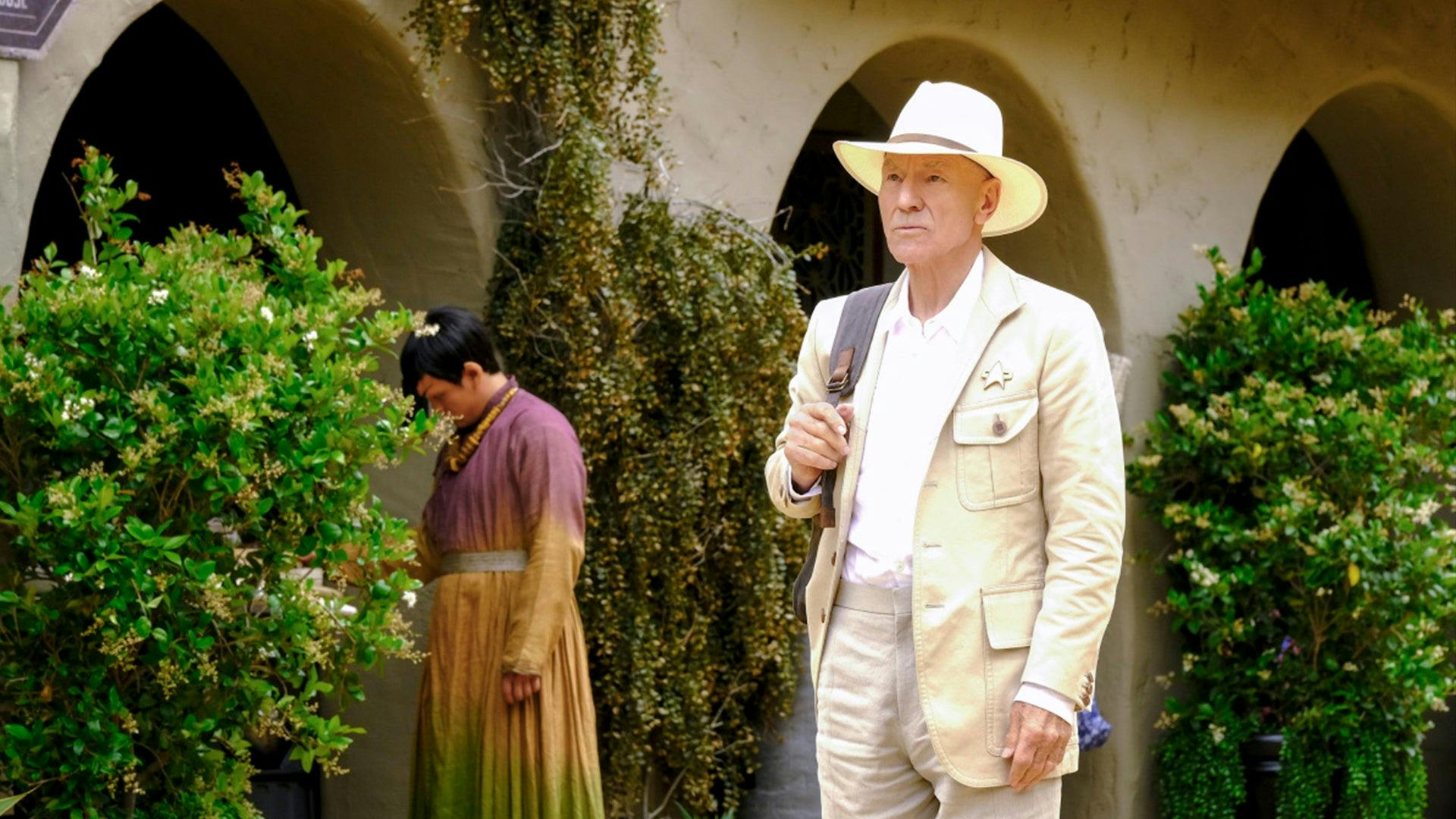
startrek.com
If Picard materializing on Vashti bedecked in classic colonizer garb isn’t a harbinger of poor choices and broken promises to come, I don’t know what is.
In “Absolute Candor” we see the big-picture fallout of Picard’s resignation: millions of Romulans without a Federation advocate and Qowat Milat without access to vital resources. Still, on a return trip 14 years in the making, “Saint Picard” is back with peak privilege, stomping into a ‘Romulans Only’ bar and demanding service.
Like misguided international aid groups of late 20th-century Earth, Picard and the Federation were guilty of having “no understanding of [the] ingenuity, resolve, and self-sufficiency,” of the people they were trying to save, says former senator, Tenqem Adrev. And then they forgot about them completely.
Confronted with this reality, Picard employs the weak defense that people in power use when they royally mess up. Of course he never intended for this to happen. It’s not until the situation escalates and Elnor decapitates Adrev in front of him that he finally publicly admits that he and the Federation failed.
But he’s still organic
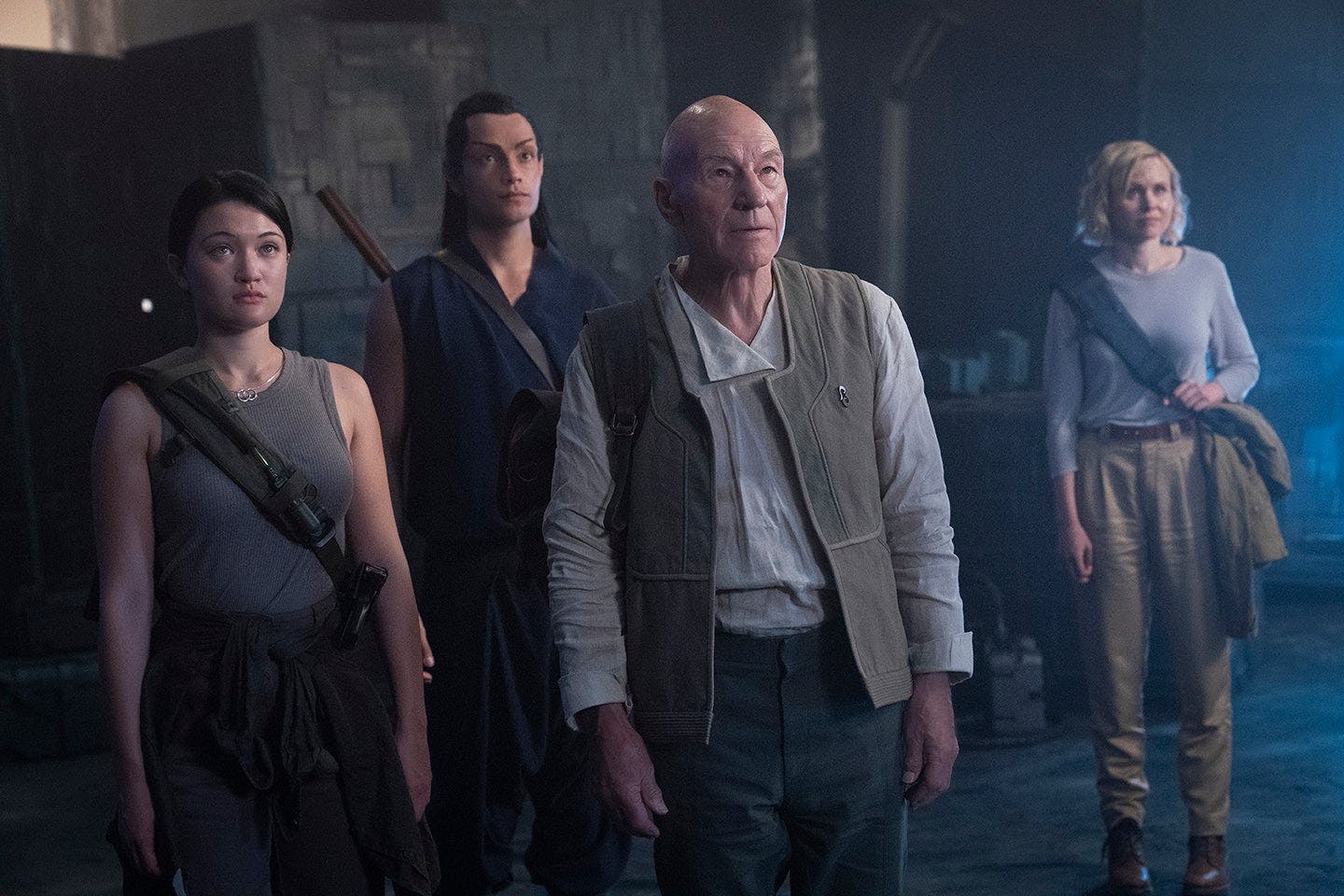
StarTrek.com
As Season 1 concludes, it becomes clear that the ultimate reckoning will be with the arrogance of the folks at the top of the universal hierarchy — organics.
Despite the fact that the Admonition literally breaks organics’ brains, they never consider the message might not actually be for them but for synthetics. The notion that a synthetic super-race might exist isn’t in their wildest imaginings.
With that in mind, Sutra’s concern that organics will always threaten synthetic life is completely valid. “Banning synthetics was just a way of exterminating us in advance,” she says in “Et In Arcadia Ego, Pt. 1.” This may not justify Sutra’s bad choices, but it’s certainly a viewpoint Picard should have considered before making more promises.
His friends make him a better person

StarTrek.com
Still, Picard has one privilege that we can’t find fault with: good friends who call him out when he misses the mark. On the starship Enterprise, this task fell to Guinan; on Picard, it’s everyone’s job. (Though I sincerely hope that Guinan will reprise her role!)
“Of course, if it’s important to Jean-Luc Picard, it must be important to the whole galaxy,” says Laris early in the season. Later, in “Nepenthe,” Riker calls out the “classic Picard arrogance.” And, in the same episode, when Picard meets Soji’s very reasonable lack of trust with a sarcastic lack of empathy and she pushes him, I nearly cheered when Troi told him “he had it coming.”
The fact that Picard’s friends can do this at all speaks to the positive character traits Picard embodied on Next Generation, most notably, an ability to consider other viewpoints and a willingness to grow.
“They know him as a mentor, they know him as a friend,” explains Parham, who explores the bridge crew’s communication dynamics in his book. “They still call him out. Why? Because your friends are the ones who can tell you when you’re effing up.”And, as the finale reveals, they can even save you from yourself.
Star Trek: Picard Opens Up a New Chapter
Ruth is a black/Latinx freelancer based in Istanbul who writes about culture, travel, and wellness. She still hasn't finished all of DS9. @Ruth_Terry
Star Trek: Picard streams on Paramount+ in the United States, in Canada on Bell Media’s CTV Sci-Fi Channel and OTT service Crave, and on Amazon Prime Video in more than 200 countries and territories.

